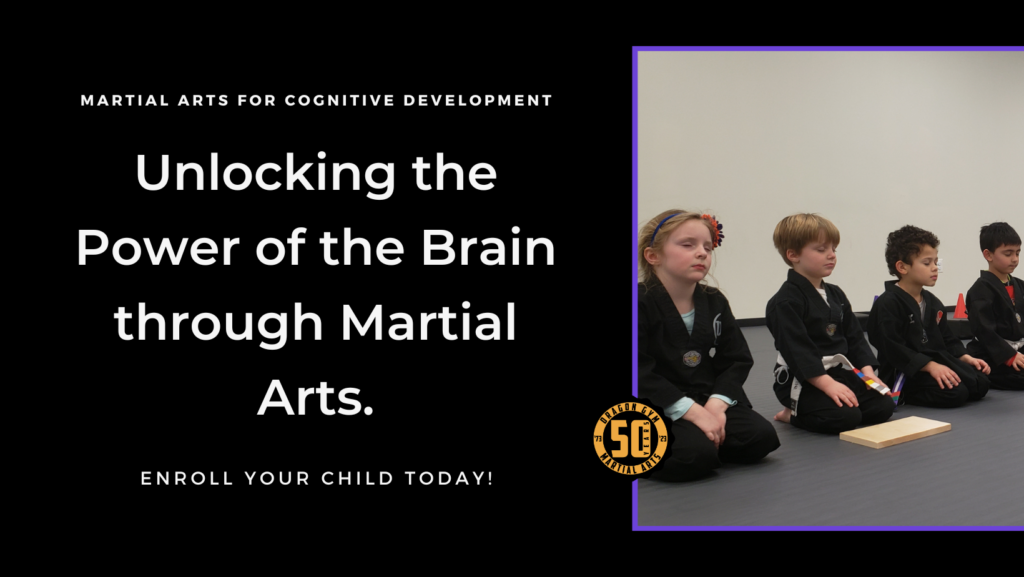The Science of Martial Arts: Unleashing Cognitive Power in Kids
Imagine your child excelling in school, making new friends, and developing a strong sense of self-confidence. This might sound like a dream, but it’s a reality that can be achieved through the power of martial arts. In this blog post, we’ll explore the science behind the cognitive benefits of martial arts for children and how it can contribute to their academic success in the new year.

The Cognitive Benefits of Martial Arts:
- Improved Focus and Concentration:
Martial arts training requires a high level of focus and concentration. Through consistent practice, children develop the ability to stay on task and ignore distractions. This improved focus can translate to better performance in school, especially during tests and exams.
- Enhanced Problem-Solving Skills:
In martial arts, students learn to analyze and adapt to different situations quickly. This ability to think critically and make fast decisions helps children develop their problem-solving skills. As a result, they become better equipped to handle challenges both inside and outside the classroom.
- Increased Memory Retention:
A key component of martial arts training is the memorization of various techniques and movements. This practice helps improve memory retention, which can be beneficial for children in school as they learn new subjects and retain information for tests and exams.
- Boosted Self-Confidence:
As children progress in their martial arts training, they gain a sense of accomplishment and mastery. This, in turn, boosts their self-confidence. This newfound confidence can help them take on new challenges in school and in life.
The Psychological Benefits of Martial Arts:
- Stress Reduction:
Martial arts training provides an outlet for children to release pent-up energy and stress. The physical activity and focus required during training can help reduce anxiety and improve overall mental well-being.
- Emotional Regulation:
Through martial arts, children learn to control their emotions and react calmly to stressful situations. This emotional regulation can help them navigate the social and academic challenges they face in school.
- Improved Social Skills:
Martial arts classes provide a supportive and inclusive environment for children to make new friends and develop social skills. The camaraderie and teamwork fostered in these classes can help children build strong and lasting friendships.
Conclusion:
The science behind martial arts and its cognitive and psychological benefits for children is undeniable. By enrolling your child in a martial arts program, you’re not only helping them develop their physical abilities but also unlocking their full cognitive and emotional potential. As we enter the new year, consider giving your child the gift of martial arts and watch as they thrive both in and out of the classroom.

